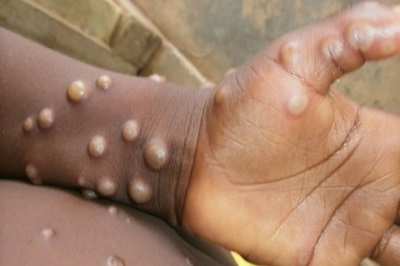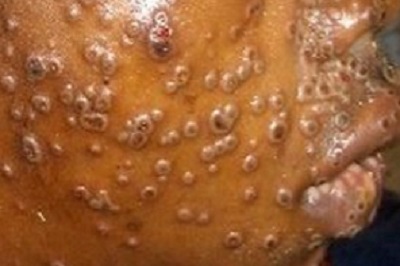
Cases of mpox virus have recently been identified in New York state, including Westchester County. Updated case totals can be found on the NY State Department of Health website.
What is mpox?
Mpox is a disease caused by the mpox virus. It can spread from animals to humans, as well as between people.
Who is at risk of getting mpox?
Anyone can get mpox. However, based on the current outbreak, certain populations are being affected by mpox more than others, including men who have sex with men (MSM). Based on previous outbreaks of mpox around the world, some groups may also be at heightened risk for severe outcomes if they contract mpox. This includes people with weakened immune systems, older adults, young children under 8 years of age, and pregnant people.
What are the symptoms of mpox?
Symptoms of mpox usually include a rash, fever, chills, swollen lymph nodes, intense headache, muscle aches, back pain and low energy. The rash usually begins within one to three days of the start of a fever. Lesions can be flat or slightly raised, filled with clear or yellowish fluid, and can then crust, dry up and fall off. Mpox rashes can resemble some sexually transmitted diseases, including herpes and syphilis.
How does mpox spread from person to person?
People with mpox are infectious while they have symptoms (normally for between two and four weeks). You can catch mpox through close physical contact with someone who has symptoms. The rash, bodily fluids (such as pus or blood from skin lesions) and scabs are particularly infectious. Clothing, bedding, towels and other shared objects like eating utensils/dishes that have been contaminated with the virus can also infect others. People who closely interact with someone who has mpox, such as health care workers, household members and sexual partners are at greater risk for infection.
Is mpox a sexually transmitted infection?
In the current mpox outbreak, the virus is spreading primarily through sexual contact; however, infections have occurred through other exposures, including non-sexual contact with infectious lesions and from contaminated instruments in clinic settings. Anyone who has close physical contact with someone who is infectious is at risk. If you or a recent partner (from the last 21 days) have been exposed or have symptoms, you should see a healthcare provider (remind them mpox is circulating), cover your rash/sores, wear a mask, and avoid close contact with others.
What do mpox rashes or lesions look like?

How can I protect myself and others against mpox?
Avoid close contact (touching sores, kissing, sex) with anyone who has a rash or symptoms of mpox.
If you live with someone who has mpox, the infected person should isolate from others and and cover any skin lesion if they can. When you are physically close to them, they should wear a medical mask, and you should wear one also. Avoid skin-to-skin contact whenever possible and use disposable gloves if you have to have any direct contact with their rash. Also wear a mask and gloves when handling any of their clothes or bedding if the person cannot do it themselves.
Regularly clean your hands with soap and water, especially after contact with the person who is infected, their clothes, bed sheets, towels and other personal items that they have touched. Wash the person’s clothes, towels and bedsheets and eating utensils with warm water and detergent.
Is there a vaccine for mpox?
Yes, there is a vaccine for mpox. People at higher risk for mpox infection may consider vaccination with the two-dose JYNNEOS vaccine. Mpox (Monkeypox) vaccines are available at our clinics. Appointments are required, call (914) 995-5800. If you meet the NYSDOH guidance outlined below, you are eligible to register for the Mpox vaccine:
- Individuals with recent exposure to a suspected or confirmed mpox case within the past 14 days.
- Those at high risk of a recent exposure to mpox, including gay men and members of the bisexual, transgender, and gender non-conforming community and other communities of men who have sex with men and who have engaged in intimate or skin-to-skin contact with others in the past 14 days areas where mpox is spreading.
- Individuals who have had skin-to-skin contact with someone in a social network experiencing mpox activity, including men who have sex with men who meet partners through an online website, digital application ("app"), or social event, such as a bar or party.
- Any individual that may be at risk of future exposure to infection with mpox, even though they are not at high risk of a recent exposure to mpox
People may also be vaccinated after exposure to mpox virus to help prevent mpox disease. Vaccination continues to be one of the most important prevention measures. CDC expects new cases among previously vaccinated people to occur, but people who have completed their two-dose JYNNEOS vaccine series may experience less severe symptoms than those who have not.
Use the Mpox Vaccine Locator Tool to find other sites offering the vaccine in your area.
Find out What to Expect After Your Mpox Vaccine.
Are there treatments available for mpox?
Antiviral medications exist to treat mpox, which may be appropriate for some people. Prescription medicated mouthwashes and topical gels can also provide pain relief and keep rashes and lesions clean.Talk to your healthcare provider about prescription medications, as well as the use of over-the-counter oral antihistamines and topical agents.
What should I do if I think I may have mpox?
At this time, the risk to the general population is low. However, the following groups should be extra vigilant and reach out to their health care provider if they develop symptoms of mpox:
- People who have traveled to central or west African countries, parts of Europe where mpox cases have been reported, or other areas with confirmed cases of mpox during the month before their symptoms began,
- People who have had contact with a person with confirmed or suspected mpox, or
- Men who regularly have close or intimate contact with other men, including men who meet partners through online websites, digital applications (“apps”), or at bars or parties.
Mpox General Resources:
- NY State Situation Update (NYSDOH)
- Mpox Homepage (CDC)
- Health Alert Network (HAN): Updated Case-Finding Guidance (CDC)
- Mpox Command Center (NCSD)
Mpox School Resources:
- Questions and Answers Regarding Mpox (For Administrators and Staff of Institutions of Higher Education (IHEs)
such as Colleges and Universities) NYSDOH - Video on Safe Return to Campus: Preparing for Mpox and COVID-19, hosted by the American College Health Association and the American Council on Education
Mpox Downloadable Materials:
- Hand Out: What to Expect After Your Mpox Vaccine (NYS)
- Hand out: Mpox and Sexual Health (NYS)
- Information Card:Mpox and Sexual Health (NYS) Spanish
- Palm Card: Be Aware, Your Community Cares (NYS) Spanish
- Poster: Protect Yourself, Your Friends and Your Community (NYS)
- Poster: Protect Your Community and the People You Party or Play With (NYS)
- Poster: It Takes Two Doses (NYS)
- Poster: Know the Skin You're in -Tattoo (NYS)
- Poster: Know the Skin You're in (NYS)
